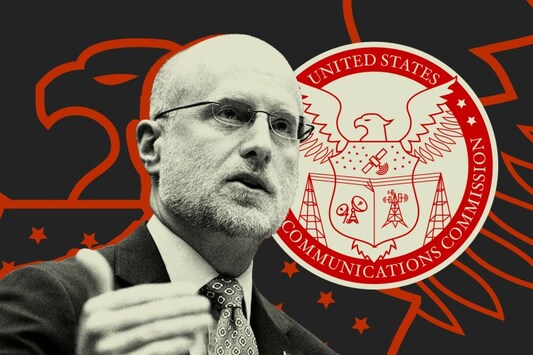
FCC Investigation into EchoStar Explained: What’s Happening and Why It Matters
Is EchoStar going bankrupt? Why is the FCC investigating EchoStar, and how is SpaceX involved? These are the questions making headlines as the satellite and wireless communications company finds itself under scrutiny. At the heart of the matter is a Federal Communications Commission (FCC) probe into whether EchoStar is meeting its 5G deployment requirements—obligations the company must fulfill to retain its valuable spectrum licenses. Missing over half a billion dollars in interest payments, EchoStar now teeters on the edge of financial distress, triggering concerns among investors, telecom analysts, and regulators alike.
EchoStar’s Missed Payments Raise Bankruptcy Concerns
EchoStar has failed to make two major interest payments: $183 million and $326 million, respectively. These missed payments, reported by the Wall Street Journal and Bloomberg, have amplified fears of a looming bankruptcy filing. Despite these financial red flags, the company has commissioned a new communications satellite—EchoStar XXVI—to bolster its Dish TV service across all 50 U.S. states and Puerto Rico by 2028. The move appears contradictory, as it pours capital into legacy television services while its core wireless and 5G operations remain under regulatory siege.
FCC 5G Probe Threatens Spectrum Licenses
The FCC's ongoing investigation could have major implications for EchoStar’s future in 5G. After Dish Network re-merged with EchoStar in 2023 to strengthen its mobile presence—particularly through Boost Mobile—their goal was to become a viable fourth competitor to AT&T, Verizon, and T-Mobile. However, the FCC is reviewing whether EchoStar has met its deployment benchmarks required to keep its 2 GHz band spectrum licenses, which are essential for rolling out competitive 5G networks. Without these licenses, EchoStar's vision of becoming a nationwide wireless provider could collapse, affecting consumers, shareholders, and mobile broadband competition.
SpaceX vs. EchoStar: A Battle for 5G Spectrum
The drama intensifies as Elon Musk’s SpaceX challenges EchoStar’s claim to 2 GHz spectrum. In an April 2025 FCC filing, SpaceX accused EchoStar of failing to utilize its allocated spectrum effectively—calling its current 5G signal use "de minimis at best." SpaceX, seeking to expand its Starlink satellite internet services, has been aggressively lobbying for spectrum reallocation, accusing EchoStar of hoarding licenses. EchoStar, in turn, labeled the effort a “land grab.” This turf war over high-value mid-band spectrum has caught the FCC’s attention, possibly complicating EchoStar’s ability to defend its licenses.
Boost Mobile in Limbo Amid Regulatory Uncertainty
Amid regulatory pressure, EchoStar has reportedly “frozen decision-making” regarding Boost Mobile, according to The Wall Street Journal. This strategic paralysis could stall much-needed investments, marketing, and infrastructure development just when competition in the mobile industry is heating up. Without a clear path forward, Boost Mobile risks losing ground in the crowded prepaid market, especially as companies like T-Mobile and AT&T push aggressive 5G and fiber bundle deals.
EchoStar’s Satellite Ambitions Still Soaring
Despite its financial strain, EchoStar continues to bet big on satellite broadcasting. The newly commissioned EchoStar XXVI, announced by Maxar Space Systems, is slated to enhance Dish TV’s footprint and signal strength across North America. While TV advertising and pay-per-view services remain profitable niches, the declining cable TV market raises questions about the ROI of such capital expenditures—especially when 5G and mobile broadband are forecasted to be the growth engines of the future.
What This Means for Telecom Investors and Consumers
If the FCC revokes EchoStar’s spectrum licenses or forces a divestiture, the financial impact could be seismic. Spectrum is a telecom company’s lifeblood, and losing access could dramatically devalue EchoStar’s assets. For investors, it signals heightened risk and volatility. For consumers—especially those relying on Boost Mobile or Dish TV in underserved regions—this situation could lead to diminished service quality or rising costs.
Meanwhile, advertisers and digital marketers should note that keywords like “5G spectrum auction,” “telecom regulation,” “satellite broadband,” “wireless network disruption,” and “bankruptcy protection telecom”. Writing content around these angles can help publishers capitalize on trending topics while offering real value to readers seeking clarity in a confusing telecom landscape.
FCC's Decision Could Reshape U.S. Wireless Competition
The outcome of the FCC investigation into EchoStar won’t just determine the fate of a single company. It could alter the competitive landscape of U.S. wireless networks and influence future spectrum policies. As the battle for mid-band spectrum intensifies, regulatory agencies will play a crucial role in deciding who shapes America’s 5G future—legacy players like EchoStar or disruptive challengers like SpaceX.

𝗦𝗲𝗺𝗮𝘀𝗼𝗰𝗶𝗮𝗹 𝗶𝘀 𝘄𝗵𝗲𝗿𝗲 𝗽𝗲𝗼𝗽𝗹𝗲 𝗰𝗼𝗻𝗻𝗲𝗰𝘁, 𝗴𝗿𝗼𝘄, 𝗮𝗻𝗱 𝗳𝗶𝗻𝗱 𝗼𝗽𝗽𝗼𝗿𝘁𝘂𝗻𝗶𝘁𝗶𝗲𝘀.
From jobs and gigs to communities, events, and real conversations — we bring people and ideas together in one simple, meaningful space.

Comments